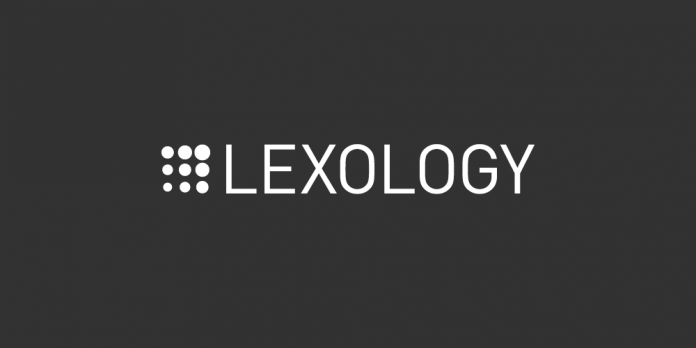As the technology developed rapidly, digitalization has experienced its golden age in recent years. Concepts that we had never heard before entered our lives. One of the examples of this is undoubtedly NFTs, which have been discussed since 2016 and has not fallen off the agenda recently.
NFT simply refers to a singular digital token defined as an immutable “token” on any blockchain. NFTs are used to “tokenize” many assets such as videos, artwork, objects in games, gifs and collections on the blockchain network.
Unlike other crypto assets, NFTs stand out as they go beyond the copying and storage features of the digital environment, and even if copied, the original asset (image, video, music, etc.) is “certified” in the digital environment, unique to its owner. For this reason, it is used especially by art circles to record their works in digital media. Thus, the owners of the works can register the originality of their works in the digital environment.
While the usage areas of NFTs continue to be discussed, the concept of Metaverse started to come forward with digitalization. After Facebook’s CEO Mark Zuckerberg announced that the company had changed its name to “Meta”, almost everyone has heard of the Metaverse. Metaverse, is defined as “a shared virtual universe that can be experienced simultaneously and integratedly with the physical world using technologies such as augmented reality, virtual reality and blockchain”. The technological opportunity and infrastructure to implement the Metaverse does not yet exist. However, some of the technologies that will be used in the creation of Metaverse are already in use. One of these technologies is undoubtedly NFTs. With the Metaverse universe on the agenda, the NFT market has started to develop more rapidly than ever. In Metaverse universe, land, house and goods can be purchased as NFTs. Also some of the well-known brands convert their products to NFTs. For example, Nike recently acquired RTFKT Studios, a company that manufactures NFT shoes for Metaverse. Then recently, NFTs have emerged in the domain market.
As known that domain is a naming method developed to be used instead of IP addresses which are difficult to remember. It is now possible to purchase domains as NFTs over the blockchain network.
NFT domains are new web extensions such as “.crypto” or “.eth” (similar to .com or .info) that are linked to the blockchain via smart contracts. Their difference from traditional domains is that due to the nature of NFTs, the domain is “certified” with personalized smart contracts when bought as NFTs.
In the traditional sense, when a domain is purchased, the domain is actually rented for a certain period of time. For this reason, those who have obtained the domain must renew the domain at the end of the specified period in order to continue using the domain. Thus, there is a concern for those who use the domain to constantly monitor the relevant periods and to renew the domain. NFT domains are purchased once and belong to the user after purchase. Therefore, unlike the situation in traditional domains, the NFT domain owner does not have to worry about renewing the domain. Also, NFT domains are stored in secure wallets and can be transferred as cryptocurrencies on the blockchain from which they were created, as they are crypto assets.
Since NFT domains exist on the blockchain they were created on, when that blockchain ends, the NFT domain will also cease to exist. Therefore, unlike traditional domains, the NFT domain owner will not be able to claim any ownership in such case.
The fact that domains can be purchased as NFTs, raises the question of what the current ambiguities about domains will turn to in the blockchain world. It is a matter of curiosity about what will happen in the discussions about the concept of cybersquatting, which can be defined as taking brands or similar names belonging to someone else as a domain for profitable resale, over NFT domains. As a matter of fact, in order to prevent cybersquatting, there is Internet Corporation for Assigned Numbers and Names (ICANN) and dispute resolution mechanisms developed by this institution on traditional domains. However, in case of any dispute over NFT domains, there is no dispute resolution mechanism yet. For example, if a domain as with the Apple brand is purchased as NFT by third person other than Apple, there is no international authority that Apple can take action against the cybersquattor. In the event of such conflict over NFT domains, only time will show us how it will be resolved.
Credit: Source link






















 Bitcoin
Bitcoin  Ethereum
Ethereum  Tether
Tether  Solana
Solana  USDC
USDC  Lido Staked Ether
Lido Staked Ether  XRP
XRP  Dogecoin
Dogecoin  Toncoin
Toncoin  Cardano
Cardano  Shiba Inu
Shiba Inu  Avalanche
Avalanche  Wrapped Bitcoin
Wrapped Bitcoin  TRON
TRON  Bitcoin Cash
Bitcoin Cash  Polkadot
Polkadot  Chainlink
Chainlink  NEAR Protocol
NEAR Protocol  Polygon
Polygon  Internet Computer
Internet Computer  Litecoin
Litecoin  Uniswap
Uniswap  LEO Token
LEO Token  Dai
Dai  Hedera
Hedera  First Digital USD
First Digital USD  Stacks
Stacks  Aptos
Aptos  Ethereum Classic
Ethereum Classic  Mantle
Mantle  Cronos
Cronos  Stellar
Stellar  Cosmos Hub
Cosmos Hub  Filecoin
Filecoin  Render
Render  OKB
OKB  Immutable
Immutable  Pepe
Pepe  Renzo Restaked ETH
Renzo Restaked ETH  dogwifhat
dogwifhat  Bittensor
Bittensor  XT.com
XT.com  Arbitrum
Arbitrum  Maker
Maker  The Graph
The Graph  Optimism
Optimism  Wrapped eETH
Wrapped eETH 
